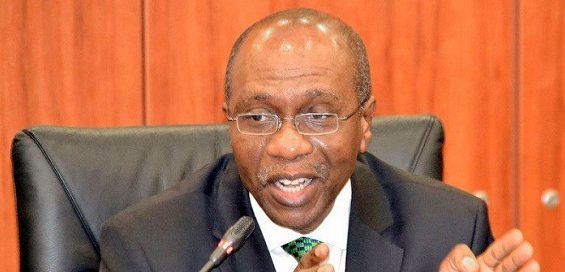Business
Banks’ daily loan from CBN rises to N216bn

The average daily loan requests by banks from the Central Bank of Nigeria (CBN) rose to N216.34 billion amid tight monetary policy by the apex bank, a recent Annual Activity Report from the Financial Markets Department of the CBN has shown.
The CBN Monetary Policy Committee had retained its interest rate which determines the rate at which banks give out loans after raising it by 200 basis points to a record high of 14 per cent with an asymmetric corridor of +200/-500 basis points in July, 2016, even as key markets players continue to call for a downward review.
The bank also maintained other monetary policy instruments such as the Cash Reserve Ratio at 22.50 per cent and Liquidity ratio at 30.00 per cent.
According to the report which was released at the weekend, the loans, which came as Standing Lending Facility (SLF), were for each of the 246 days captured by the bank in 2017, out of which Intra-day Liquidity Facility (ILF) conversion was N130.63 billion, amounting to 60.38 per cent of the total request.
The report by Alvan Ikoku, Director, CBN Financial Markets Department, indicated that the average daily interest charged was N159.96 million for the period.
In 2016, the average daily request for SLF was N130.47 billion in 207 days, out of which ILF conversion was N84.62 billion, while average daily interest income was N94.76 million.
Read Also: CBN extends implementation of N100,000 limit on USSD transactions
Meanwhile, patronage at the Standing Deposit Facility (SDF) window declined to an average daily amount of N41.90 billion for the 230 days in 2017, from N76.11 billion for the 246 days in 2016.
Similarly, the average daily interest payments on the deposits decreased to N14.86 million in the review period, from N20.01 million in 2016.
The CBN, however, attributed the drop in volume of transactions in the year to the tight monetary operations and the sale of foreign exchange to authorized dealers.
The bank said the withdrawal of Naira by the CBN through the sale of foreign exchange drained liquidity further and pushed market rates upwards.
The SLF and SDF were available for market participants to square up their positions or invest excess funds at the close of business. Similarly, ILF was accessible as temporary credit to the banks to meet their funding needs within the operating hours of the CBN Inter-bank Funds Transfer System (CIFTS).
RipplesNigeria… without borders, without fears
Click here to join the Ripples Nigeria WhatsApp group for latest updates.
Join the conversation
Opinions
Support Ripples Nigeria, hold up solutions journalism
Balanced, fearless journalism driven by data comes at huge financial costs.
As a media platform, we hold leadership accountable and will not trade the right to press freedom and free speech for a piece of cake.
If you like what we do, and are ready to uphold solutions journalism, kindly donate to the Ripples Nigeria cause.
Your support would help to ensure that citizens and institutions continue to have free access to credible and reliable information for societal development.